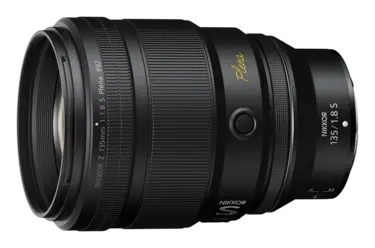The story of Plena

The NIKKOR 135mm f/1.8 S Plena is a step change in lens engineering. We go behind the scenes and speak to the great minds who made it happen
The NIKKOR 135mm f/1.8 S Plena is a benchmark not just in the history of NIKKOR lenses, but across the entire optical industry. Nearly 30 years since the launch of the legendary AF DC-NIKKOR 135mm f/2 D – which has been called the world’s greatest portrait lens – Plena takes a further leap forward.
Plena’s combination of rich, near-circular bokeh right to the very edge of the frame and amazing sharpness has been hailed as a ‘quantum leap’ in lens design. From the beginnings of the development of the Nikon Z mount, this is the kind of lens that engineers envisaged would be possible.
The width of the Z mount (the widest in full frame cameras) allowed for the design of a lens that would deliver ultimate sharpness, with smooth round bokeh all the way to the edges of the frame. Previously, such a lens would have been too large and cumbersome because the front element would have to be so wide as to be impractical, while additional weight would be needed in extra lens elements to compensate for aberrations. Indeed, the initial prototype of the lens was 1.5 times larger than the finished product. Something had to change.
Takamitsu Sasaki, from NIKKOR’s Optical Engineering Division, tells us the story: “When designing a lens for abundant peripheral illumination, the diameter of the lens will be naturally larger. In addition, if parts such as the motor are constructed within a simple layout, the diameter and weight of the lens will be larger. However, we wanted to minimise the size so that the use of highly versatile 82 mm filters was made possible.”
That first prototype was 112 mm wide and deemed too large to be portable in normal use. It was also heavy, so a new construction was needed to lighten the overall weight of the lens and ensure super-fast AF.
NIKKOR’s mechanical and optical teams worked tirelessly together, reducing the weight of the focusing groups and using simulations to design a lens barrel that achieves light weight without compromising on robustness. Simulations were done on air flow within the lens barrel and the overall design tested to ensure optimum dust and drip resistance.

At the heart of the design was the desire to create something not seen before – a lens that could create near-circular bokeh to the edge of the frame with minimal vignetting. As Sasaki says: “The ultimate advantage of this lens is the achievement of minimal vignetting. Usually with lenses, the shape of bokeh gradually becomes polygonal as the aperture is stopped down, although it is circular at the maximum aperture. By employing an 11-blade diaphragm we have ensured that the circular shape of the bokeh can be maintained even when the aperture is stopped down by a few stops.”
NIKKOR Optical Engineer Tomonori Kuribayashi adds that vignetting had always been seen as an unavoidable compromise: “The dilemma has always been that, to minimise vignetting at the edge of the frame, you had to reduce the aperture, leading to less vignetting but also less bokeh. What the extra-large diameter of Z mount has enabled us to do with Plena is create a lens where this is now possible. We’ve also gone to great lengths to correct both axial and lateral chromatic aberrations, which improves the textures of the subject while minimising colour fringing on the bokeh.”
In the end, Plena is about what owners will achieve with it. As Sisi Chen, from NIKKOR’s UX planning unit, says: “The Z mount enabled us to take on this huge challenge, which was not possible before, and create Plena, a lens that can transform our everyday situations into dreamlike moments that we can cherish.”
Watch the YouTube series on the Making of Plena below.
The Making of Plena

Uncover NIKKOR lenses
Introducing the NIKKOR Z 135mm f/1.8 S Plena
Die Zahlen hinter der neuen Objektiv-Legende, dem NIKKOR Z 135mm f/1.8 S Plena

Für noch mehr Kreativität








